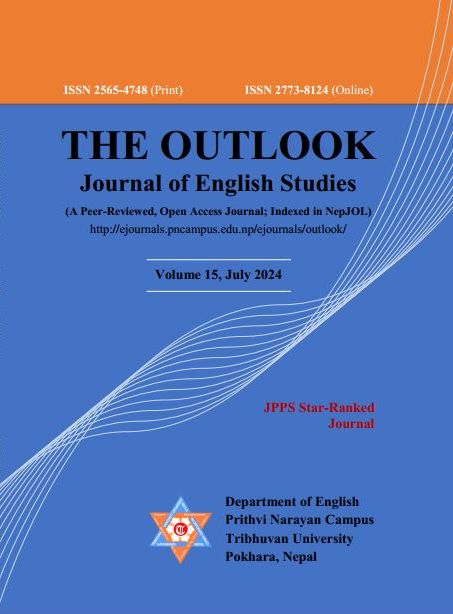Identity Formation and Acculturation in Smith’s White Teeth and Adichie’s Americanah: Critiquing the Immigrants’ Generational Experiences
DOI:
https://doi.org/10.3126/ojes.v15i1.67759Keywords:
Identity formation, acculturation, immigrants, cultural root, hybridityAbstract
This paper examines the relationship between identity formation and acculturation in Zadie Smith’s White Teeth and Chimamanda Ngozi Adichie’s Americanah by unpacking the behaviours and experiences of the first-generation immigrant characters Samad (White Teeth) and Ifemelu (Americanah), and the second-generation immigrant characters Millat (White Teeth) and Dike (Americanah). These two generations of immigrants represent two-fold aspects of acculturation process. For the first-generation immigrants, integration serves as a vital acculturation strategy. However, the second-generation immigrants experience an in-between condition because of their weaker ties to their home country and culture, coupled with the experiences of discrimination in their new cultural environment. To analyze these themes of acculturation within the novels, this study integrates John W. Berry's and David L. Sam's concepts of acculturation, acculturation strategies, and acculturation stress. Additionally, Stuart Hall's concept of cultural identity is borrowed to elucidate the notions of culture and identity within the narratives. Furthermore, Homi K. Bhabha’s notion of hybridity is employed to examine the in-between state of second-generation immigrants in the novels. By highlighting the connection between identity formation and acculturation in the novels, this study underscores the importance of understanding the complexities of identity formation and acculturation among immigrants across generations in diverse cultural contexts.
Downloads
Downloads
Published
How to Cite
Issue
Section
License

This work is licensed under a Creative Commons Attribution-NonCommercial 4.0 International License.
This license enables reusers to distribute, remix, adapt, and build upon the material in any medium or format for noncommercial purposes only, and only so long as attribution is given to the creator.

